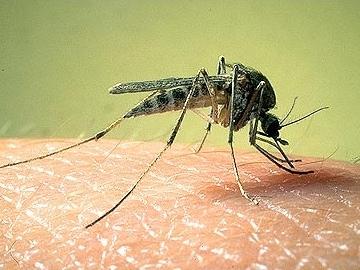The Georgia Department of Public Health has confirmed the state’s first human case of West Nile virus (WNV) of the season. The patient is an adult from metro Atlanta and has recovered.
Most people get WNV after being bitten by an infected mosquito and mosquitoes are still biting into the fall months in Georgia. The DPH urges Georgians to protect themselves against mosquitoes.
“Standing water is a breeding ground for mosquitoes that may be infected with West Nile virus,” said Rosmarie Kelly, Ph.D., MPH, Georgia Department of Public Health entomologist. “In the heat of summer, it can take less than 10 days to go from egg to adult mosquito.”
Residents can reduce the number of mosquitoes around their homes by emptying standing water from containers – flowerpots, gutters, buckets, pool covers, pet water dishes, discarded tires, and birdbaths – anything that holds water and gives mosquitoes a place to thrive. The most effective way to avoid WNV is to prevent mosquito bites and the best way to do that is to observe the “Five D’s of WNV Prevention.”
· Dusk/Dawn – Mosquitoes carrying WNV usually bite at dusk and dawn, so avoid or limit outdoor activity at these times.
· Dress – Wear loose-fitting, long sleeved shirts and pants to reduce the amount of exposed skin.
· DEET – Cover exposed skin with an insect repellent containing the DEET, which is the most effective repellent against mosquito bites.
· Drain – Empty any containers holding standing water because they are excellent breeding grounds for virus-carrying mosquitoes.
· Doors – Make sure doors and windows are in good repair and fit tightly, and fix torn or damaged screens to keep mosquitoes out of the house.
Symptoms of WNV include headache, fever, neck discomfort, muscle and joint aches, swollen lymph nodes, and a rash – that usually develop three to 15 days after being bitten by an infected mosquito. The elderly, those with compromised immune systems, or those with other underlying medical conditions are at greater risk for complications from the disease.
Anyone with questions about WNV should speak to their healthcare provider or call their local county health department, environmental health office.
More information on WNV and mosquito repellents can be found at www.cdc.gov/westnile.
*









Leave a Comment
You must be logged in to post a comment.